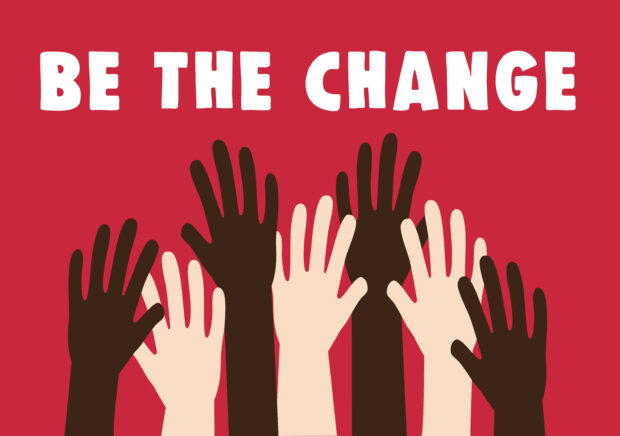Whatever Your Politics, Join ‘No-Buy Friday’ On February 28 As A Great Economic Experiment
It's an impossibly complex web of moral turpitude out there in corporate America.

Businesses have been entangled in politics since there have been businesses and politics. It didn’t used to be so in-your-face though. Now, before spending a dollar, we apparently have to somehow try to sort out the “good” corporations from the “bad” corporations.
I’m going to let you in on a little secret, though. All corporations are ultimately amoral.
A corporation’s purpose is to make money for its shareholders. Hopefully without leaving a swathe of societal destruction in its wake.
A lot of corporations talk a good game as to caring about important external things like the environment or civil unrest. Whatever they say, at the end of the day, if there is a major conflict between some purported corporate value and profitability, you don’t need an MBA to know what the real priority (for the corporation) is going to be. Here in America, we used to have things like government oversight to help ensure that companies didn’t get too evil, but elected officials would rather worry about which bathrooms we’re using, I guess.
Customers have a little influence to exert. But not much. If you really cared so deeply about exploitative labor practices, animal welfare, pollution, corruption, etc., that you would not touch any product from any company with a hand in such things, well, there is not a whole lot you could buy. So you probably do what we all do: try to avoid the very worst companies and don’t think too hard about how the rest of what you’re buying found its way into your shopping cart.
The impossibly complex web of moral turpitude in corporate America is a big part of why very few of the proposed boycotts and counter boycotts over the past 10 years of hyperpoliticization have accomplished anything (with the big exception of the Bud Light boycott — if your target demographic is men insecure about their masculinity, it turns out that even a small nod to the transgender community is a bad business decision). There are just too many people out there buying things in America, many of them ignorant of or thrilled about whatever is upsetting you, for nationwide boycotts to be effective.
However, there is a related idea floating around online that I find intriguing. A number of social media accounts with big followings are promoting a 24-hour consumer spending blackout on February 28.
The apparent leaders of this movement are also targeting specific retailers for more-widespread boycotts and are specifically upset over the Trump administration’s hostility toward diversity, equity, and inclusion programs. While I totally understand why this would be motivating for people — what, you’re for homogeneity, inequity, and exclusion? — I also don’t want to get too caught up in that specific justification for a 24-hour voluntary freeze on all consumer spending.
If we really could get a large majority of the American population to not spend any money for one whole day, something interesting would happen economically. I don’t know what, exactly, that would be. Inflation could instantly chill. CEOs might quake at the prospect of consumer power that only exists when we work together. Perhaps we would all feel momentarily connected in expressing our collective economic might.
Even if you hate DEI, I invite you to join this consumer blackout on February 28. You have nothing to lose — at the very least you will save a little money. And don’t tell me you can’t go a single day without buying anything. Make coffee at home. Fill your gas tank the day before or the day after. Eat that old can of beans that you’ve been navigating around in your kitchen cabinet for months. And in the name of all that is holy, don’t buy anything online.
There are not many chances for an individual worker, a consumer, to have any sort of real influence on the massive corporations that dominate our lives. Joining this no-buy Friday on February 28 could be the only opportunity you have for a while to show big companies that they are successful because of us, not the other way around. Our political division is their strength. Showing big companies that we can unite, however briefly, would send a powerful message.
Whatever your politics, consider joining in for a 24-hour hiatus on spending this February 28. I guarantee you have a lot more in common with other potential participants, even those who may have voted differently than you, than you do with Jeff Bezos or Elon Musk.

Comments
I was diagnosed as a Hepatitis B carrier back in 2015, with early signs of liver fibrosis. Antiviral meds helped at first, but over time, the virus became resistant, and I started to lose hope.
In 2021, I came across NaturePath Herbal Clinic (www.naturepathherbalclinic.com) and decided to try their herbal treatment, even though I was skeptical. To my surprise, after six months, my blood tests came back negative for the virus.
It was honestly life-changing. I never expected such results from a natural treatment, but it gave me a second chance and I believe it could help others too.